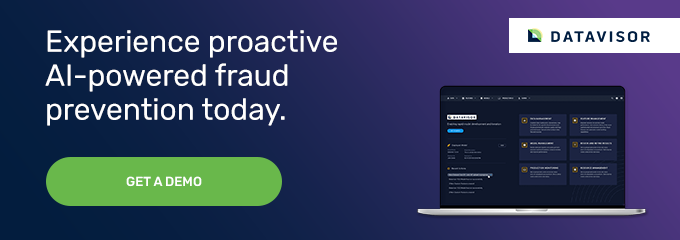
Point of Sale Finance: Stopping Fraud in the Fintech Revolution
Consumer financing options have shifted alongside end-user expectations for more variety and affordable options for credit. There’s proof of this in the rise of point of sale financing, also called point of sale (POS) lending.
The goal is clear: fast, easy credit options without the roadblocks of traditional lending. But are companies competing for business without weighing the costs (and likelihood) of fraud?
What is Point of Sale Finance?
Point of sale finance refers to financial services offered to consumers at the end of their e-commerce experience. For example, companies like Klarna offer loans to consumers at the checkout for big-ticket items. This allows consumers to make purchases on credit without the traditional hassles of taking out a loan.
There have also been some incursions by insurance companies into this market with the growth of insurance technology (insurtech) and point of sale insurance.
Because the process of approval is designed to be frictionless and fast, putting strong fraud prevention measures in place is non-negotiable.
Point of Sale Financing Offers Big Business Benefits
For online retailers and point-of-sale lending companies alike, this type of financing offers major business benefits. First, it’s a revenue source for both companies. Retailers can capitalize on sales that might otherwise be out of reach for their customers. Third parties are underwriting the loan so that retailers can collect payment and provide the best experience to their customers.
Second, these third parties benefit from the fees and interest collected from each sale. They also have the advantage of being associated with retailers that customers already know and trust.
Third and most importantly, consumers have more financing options that could be more favorable to their needs.

How to Protect POS Financing Gains from Fraud
Retailers and point-of-sale lending companies that offer “fast financing” must not be so concerned with conversions and competition that they cast fraud prevention aside. Fraud risk can increase when companies try to provide a frictionless customer experience, as companies reduce the amount of data they collect to approve credit.
What’s more, with tight competition comes the need to compete with low rates. The impact of a fraudulent event could have a greater financial effect on companies that are giving up some of their profitability to remain competitive.
In response, companies should implement a holistic fraud prevention strategy that promotes a frictionless experience and the immediacy of approval while also vetting customer authenticity.
DataVisor’s comprehensive AI-powered fraud and risk platform stop fraud at the gate by providing real-time customer data to streamline confident decision-making. Customer friction is minimized as DataVisor works in the background to link behaviors and activities that might appear valid on the surface, such as using stolen PII or hacked devices. This linkage analysis gives context into decisions so that companies can lower their false positives and prevent more fraud.
Discover how DataVisor supports point of sale finance and other use cases for lending and e-commerce. Experience proactive AI-powered fraud prevention today.

Latest Articles







